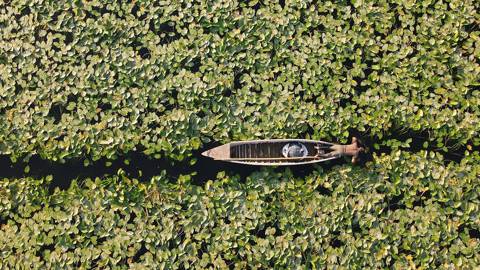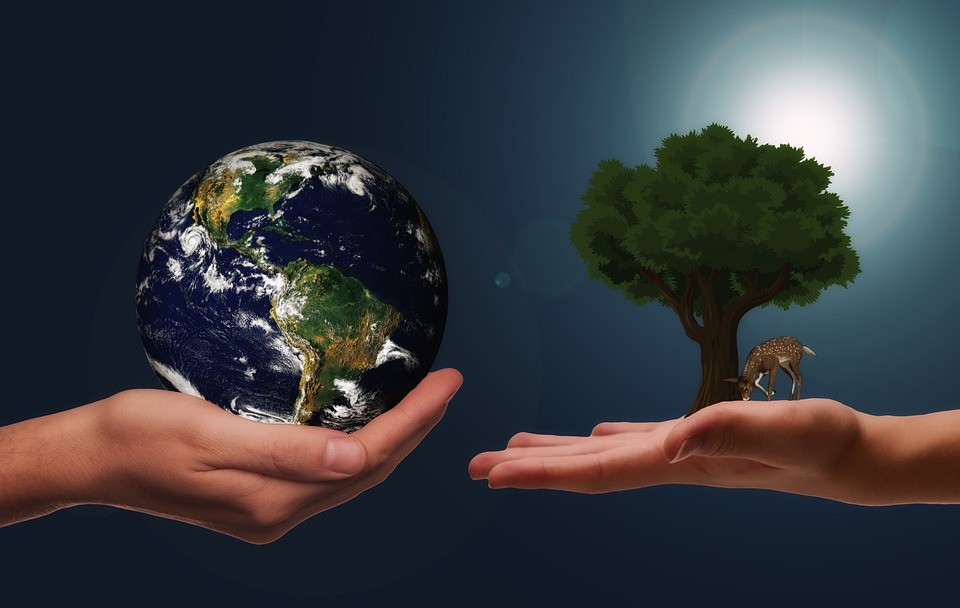Confronted with rising threats to biodiversity and the pure programs which can be essential to all economies, conservation efforts that merely cease nature loss are now not sufficient. Slightly, we have to reverse the decline, which suggests altering how we produce and eat.
WASHINGTON, DC – The Earth’s biodiversity and the companies offered by wholesome ecosystems are beneath large stress from local weather change and the problem of supporting eight billion folks in a sustainable approach. Key ecosystem companies – akin to timber from forests, pollinators, and ocean fishing – have to be conserved and cherished, but they’re being quickly eroded. The 2022 United Nations Biodiversity Convention (COP15) in Montreal this month affords an opportunity to construct on humanity’s shared imaginative and prescient of dwelling in concord with nature.
Biodiversity is a crucial aim for World Financial institution Group packages. However to reverse its loss, financial selections should take nature into consideration. That’s the reason we’re working to assist international locations combine nature into their financial progress fashions, improvement plans, and local weather agendas. Doing so means establishing insurance policies that think about nature’s actual financial worth, constructing establishments that assist nature, creating public-private partnerships to assist that aim, and mobilizing finance from all sources to rework economies and insurance policies – going nicely past remoted interventions.
Fishing is an effective instance of why nature issues for progress and improvement. Globally, fish shares are declining, owing to the triple menace of local weather change, overfishing, and air pollution. If enterprise as typical continues, the world may lose as much as 25% of fish catches by the top of the century. That ought to concern everybody, for a number of causes.
First, we’re already dealing with one of many largest food-security crises in trendy historical past. Since fish are an essential dietary part for 3.3 billion folks, a lowered provide will exacerbate meals crises now and sooner or later. Fish are wealthy in vitamins which can be significantly essential for little one improvement, and they’re an particularly valued supply of protein for the poor, as a result of they’re simpler to acquire and cheaper to protect than different sources. Therefore, fish contribute 50% or extra of the full animal-protein consumption in Ghana, Mozambique, and Sierra Leone. Furthermore, a fish scarcity will have an effect on the complete meals chain, as a result of fish merchandise are essential parts of different meals, together with livestock feeds.
Second, as fish change into scarcer or migrate to colder and deeper waters due to local weather change, many fishers might be pressured to journey farther to catch them, to vary the way in which they fish, or to seek out new jobs. Many won’t be able to adapt. Among the many 38 million folks globally who’re employed instantly in fishing, essentially the most susceptible would be the hardest hit. This contains small-scale fishing communities, which are sometimes positioned in distant areas which can be already disproportionally affected by local weather change. Ladies, who make up 50% of workers within the broader aquatic-food worth chain, may also be considerably affected. For these with little formal schooling, various livelihoods might be laborious to seek out.
Third, the affect of those threats will develop over time. Fish shares don’t respect worldwide boundaries. With out the precise rules and incentives, fleets will proceed to maximise their catches within the quick time period, with main economies overfishing far past their territorial waters. If all international locations do that, a foul drawback will change into a lot worse. Fifty years in the past, about 10% of world fish shares have been being fished at biologically unsustainable ranges, in response to the Meals and Agriculture Group of the UN. At the moment, that determine has risen to 35%. Whereas many international locations will undergo, the poorest communities stand to lose essentially the most.

HOLIDAY SALE: Save $35 on any new PS subscription
Acquire higher entry to PS – together with each commentary and our On Level suite of subscriber-exclusive content material – for as little as $49.99.
Confronted with these challenges, conservation efforts that merely cease nature loss are now not sufficient. Slightly, we have to reverse the decline, which suggests altering how we produce and eat.
One strategy is to put money into nature-based options that shield nature whereas additionally supporting financial improvement, creating livelihoods, and serving to international locations mitigate and adapt to local weather change. Take into account mangroves, that are wealthy in biodiversity, act as nursery areas for fish, shield greater than six million folks from annual flooding, and soak up carbon emissions. They’re estimated to have an financial wealth valued at $550 billion. One other instance is seaweed farming, which has the potential to create jobs, alleviate meals insecurity, and soak up carbon.
The World Financial institution Group is working throughout many fronts to assist international locations acknowledge each the worth of nature and the dangers that may observe from shedding it. Typically working via ministries of finance, we offer funding, information, coverage recommendation, and technical capability to mobilize companions behind nature-based options. With our assist, international locations are figuring out promising new interventions that may be replicated and scaled up.
For instance, by involving completely different stakeholders in marine planning, Vietnam is decreasing conflicts over useful resource use throughout sectors. In China, we’re working with the Chongqing and Ningbo municipalities to cut back the quantity of marine plastic that reaches the ocean from river effluent, constructing on earlier tasks that helped set up China’s water-treatment capability. By making use of applied sciences like satellites and drones, we’re serving to Tanzania and different international locations acquire real-time knowledge on coastal and marine degradation, in order that they will act to stop it. And thru revolutionary monetary devices akin to blue carbon credit, Ghana goals to revive 3,000 hectares of mangroves and convey in additional non-public funding.
We’re working to develop efforts like these. Close to-term targets embody extra financing for tasks in poor international locations, a much bigger position for the non-public sector, and coordinated motion from native communities to nationwide governments. But when we’re going to cease biodiversity loss, rather more must be performed, each by us and the worldwide group.



